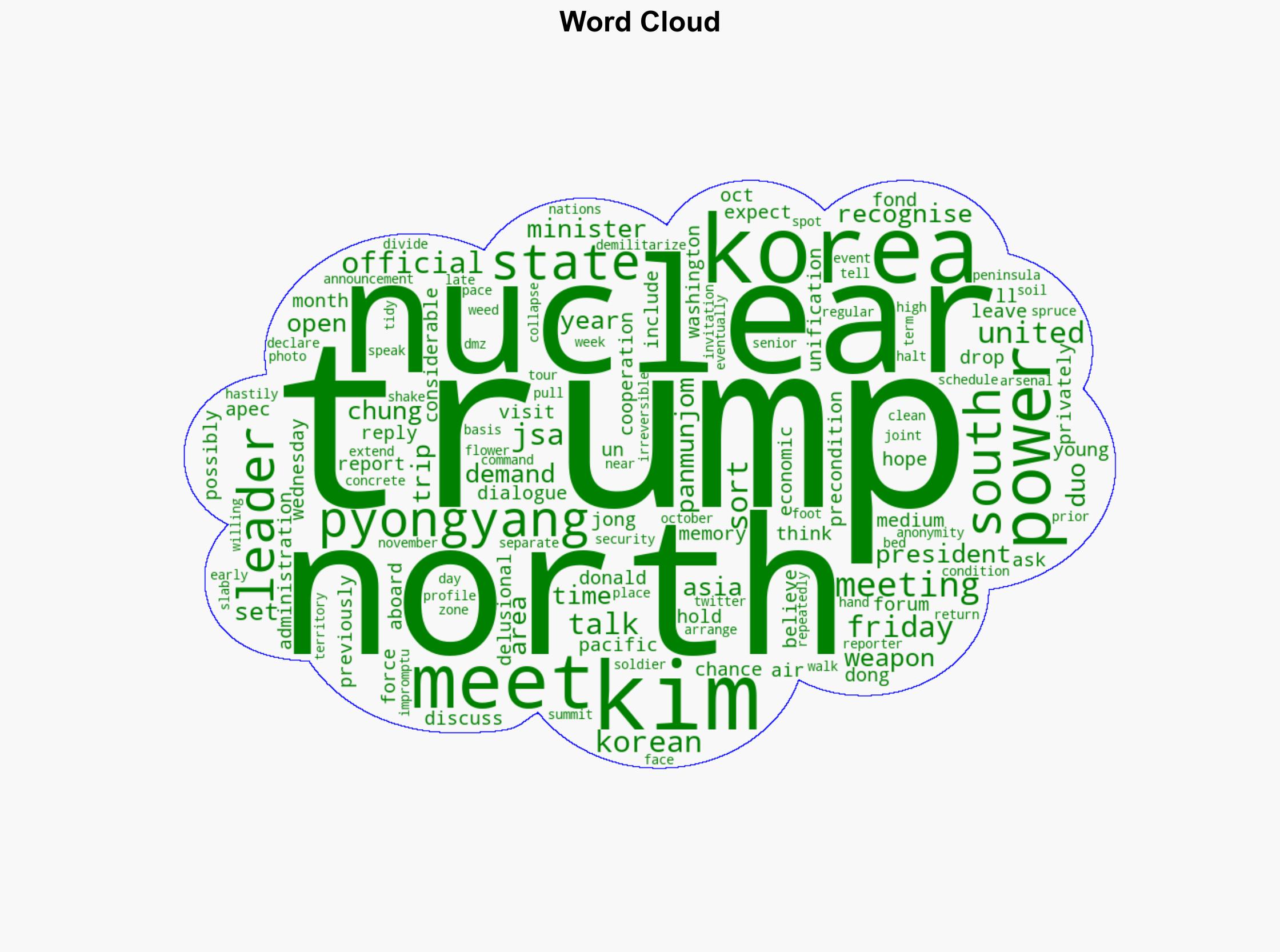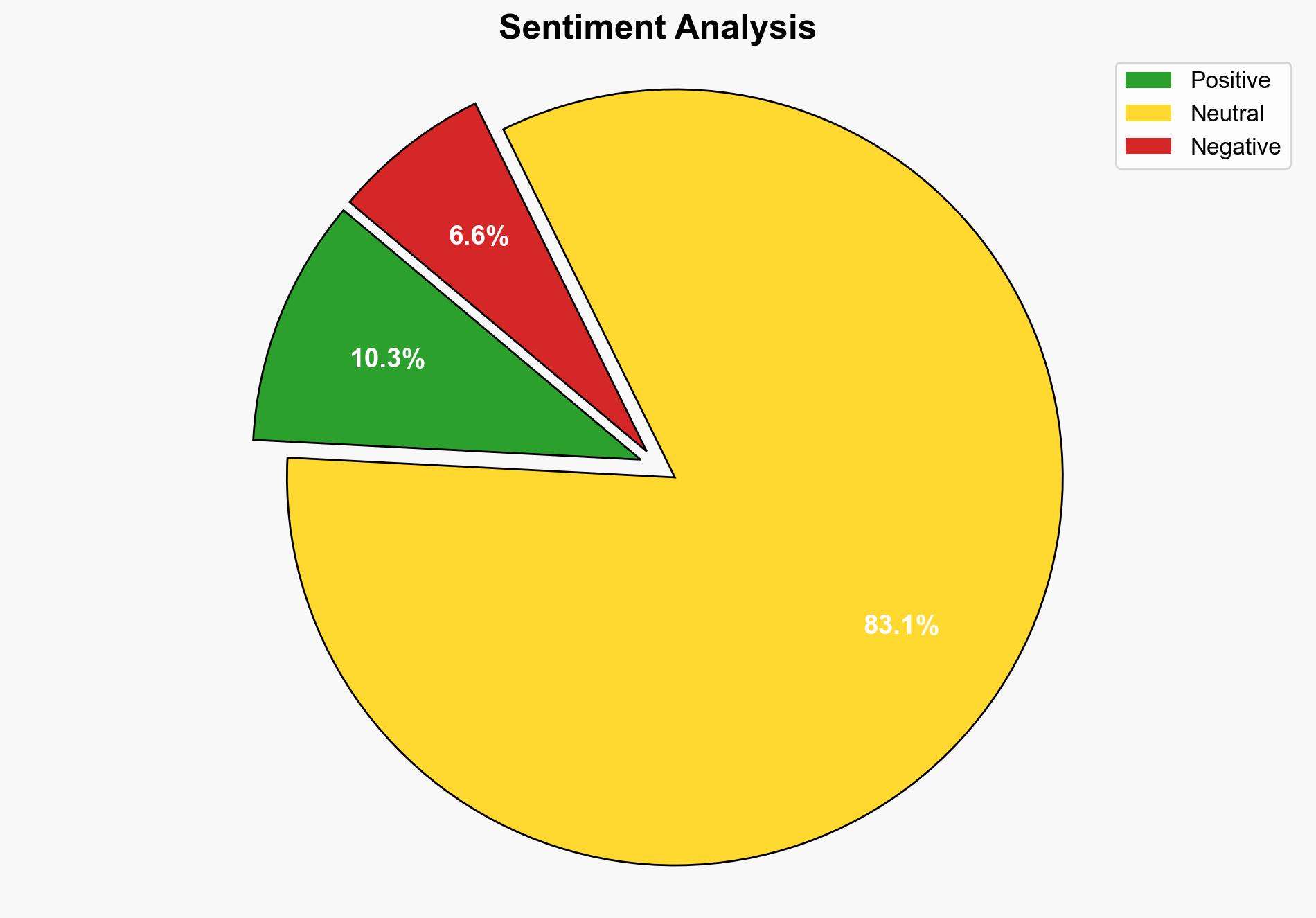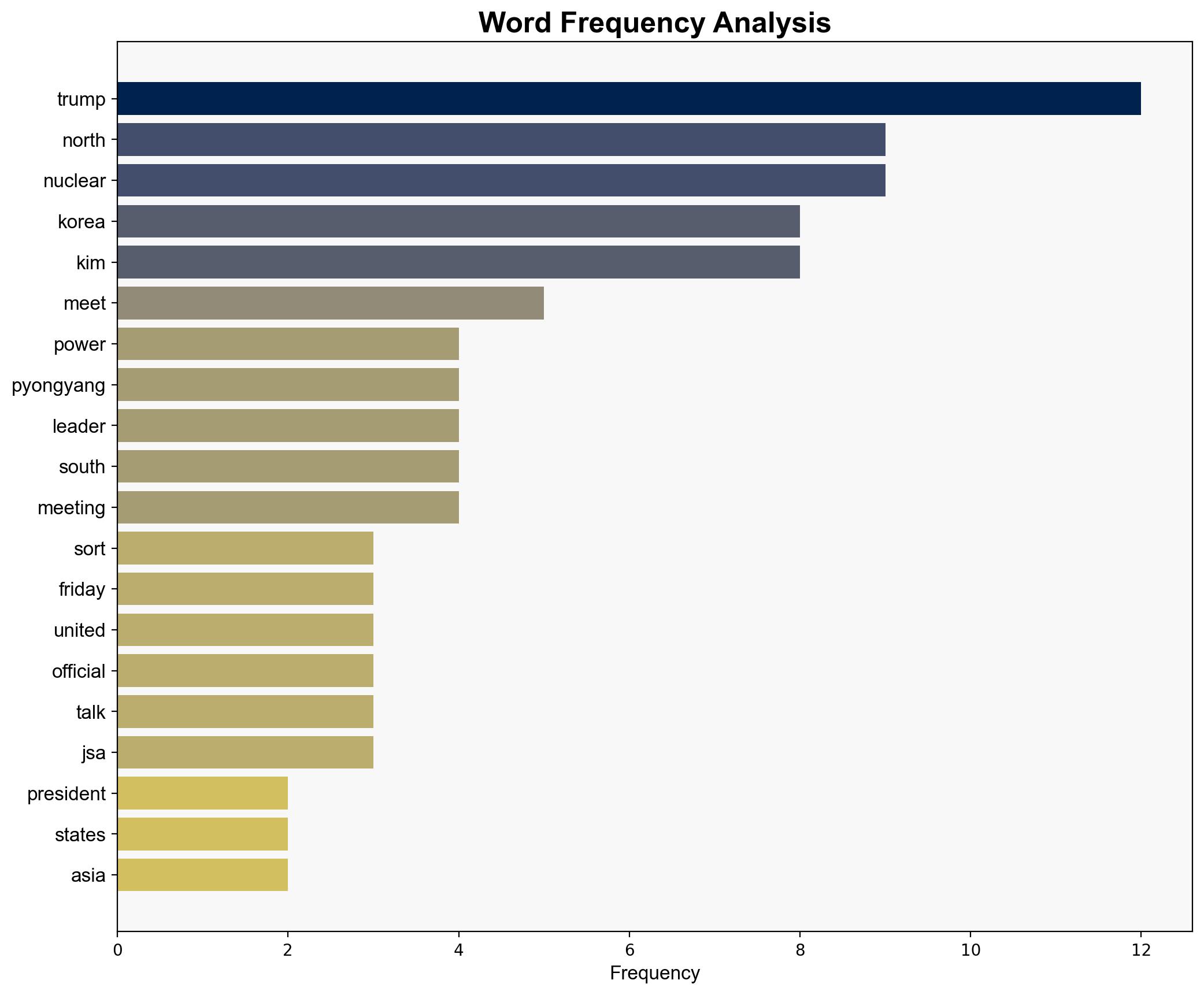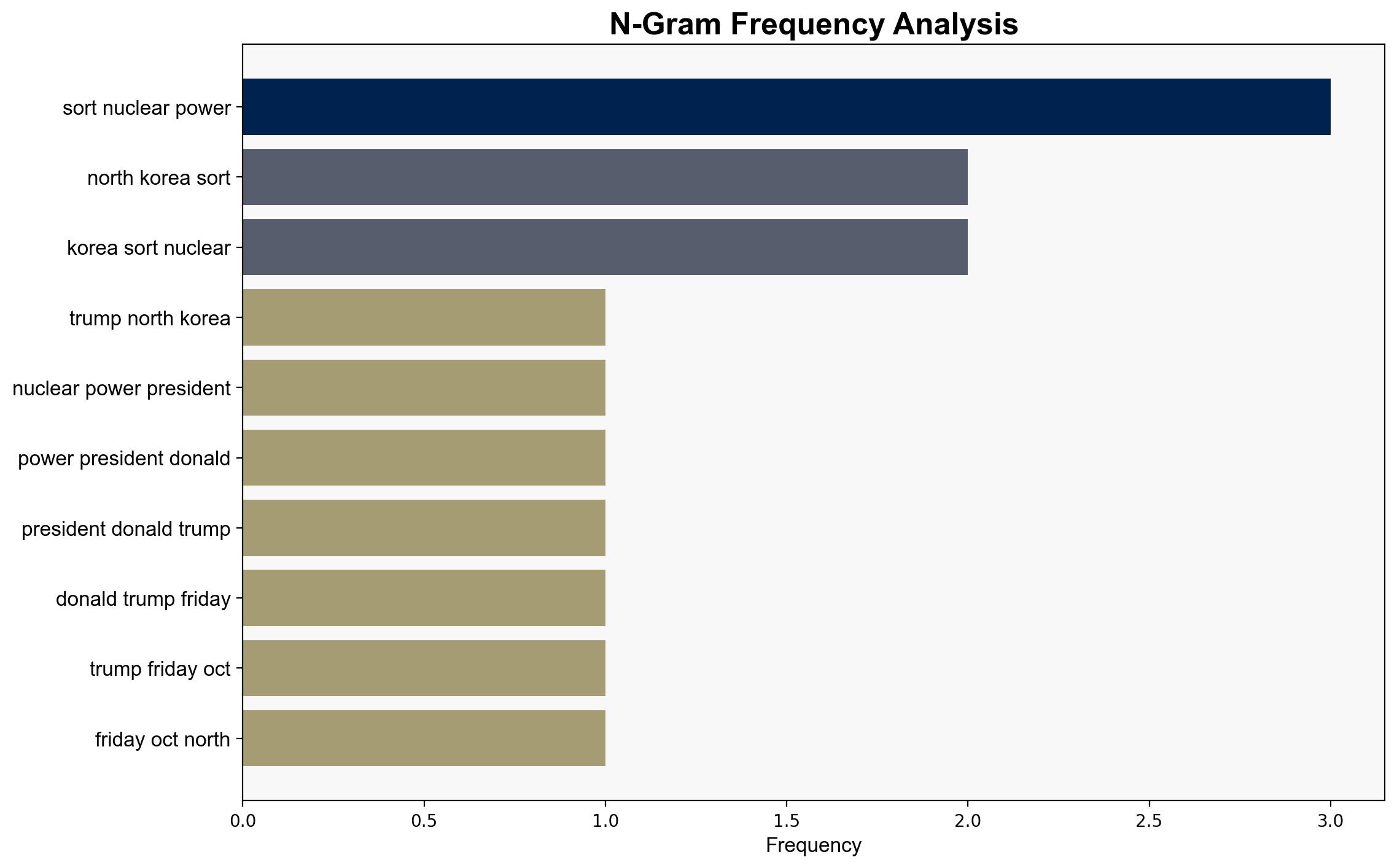Trump says North Korea is ‘sort of a nuclear power’ – CNA
Published on: 2025-10-25
Intelligence Report: Trump says North Korea is ‘sort of a nuclear power’ – CNA
1. BLUF (Bottom Line Up Front)
The analysis suggests a moderate confidence level that the U.S. may be shifting its stance towards recognizing North Korea’s nuclear capabilities, potentially as a strategic move to open dialogue. The most supported hypothesis is that this recognition is a tactical maneuver to facilitate diplomatic engagement. It is recommended to prepare for potential diplomatic talks while maintaining pressure through sanctions and international alliances.
2. Competing Hypotheses
Hypothesis 1: The U.S. is informally recognizing North Korea as a nuclear power to open diplomatic channels and reduce regional tensions. This is supported by Trump’s statements and the potential for a meeting with Kim Jong Un, indicating a strategic pivot towards engagement.
Hypothesis 2: Trump’s statement is a rhetorical device aimed at pressuring North Korea into negotiations without formal recognition of its nuclear status. This aligns with previous U.S. strategies of using ambiguous language to maintain leverage while avoiding escalation.
3. Key Assumptions and Red Flags
Assumptions include the belief that North Korea is willing to negotiate and that the U.S. has a coherent strategy for engagement. A red flag is the reliance on public statements without corroborating actions, which could indicate a lack of substantive policy change. The absence of clear commitments from North Korea raises questions about their intentions.
4. Implications and Strategic Risks
Recognizing North Korea as a nuclear power could lead to regional destabilization if perceived as U.S. acquiescence. It may embolden other nuclear aspirants. Conversely, successful engagement could reduce nuclear threats and open economic opportunities. Risks include misinterpretation by allies and adversaries, potentially leading to escalatory actions.
5. Recommendations and Outlook
- Engage in back-channel communications to clarify intentions and test North Korea’s willingness to negotiate.
- Strengthen alliances with South Korea and Japan to present a unified front.
- Prepare for best-case (successful negotiations), worst-case (escalation of tensions), and most likely (prolonged stalemate) scenarios.
6. Key Individuals and Entities
Donald Trump, Kim Jong Un, Chung Dong-young
7. Thematic Tags
national security threats, regional focus, diplomatic strategy, nuclear proliferation




